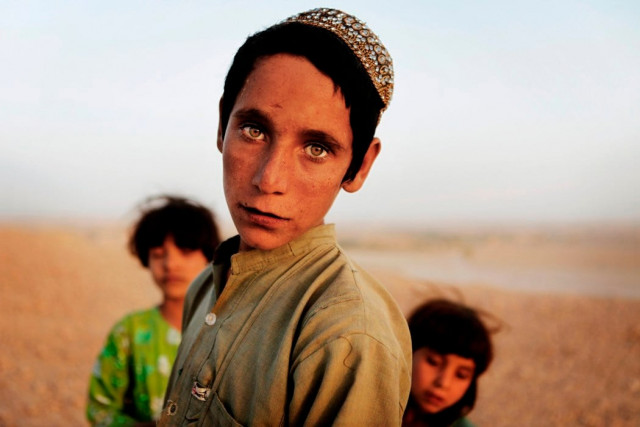Second home: Many Afghan refugees may opt to stay on
UNHCR supporting refugees going back to Afghanistan.

Abdullah Jan, 28, has lived as a refugee in Nowshera since he was two, but now feels it is time to return home to Afghanistan.
“I still associate myself with our home region of Mazar-i-Sharif in Afghanistan,” he said. “My father and I have recently visited our village there, and we intend to return before winter. I want my children to grow up as Afghans, not as persons with an indistinct identity.”
Jan and his extended family of nine will be going back over the next month or so under an ongoing repatriation programme that was halted during Ramazan.
Under a tripartite agreement between the UN Refugee Agency (UNHCR) and the governments of Pakistan and Afghanistan, Afghan refugees in Pakistan have a deadline of 31 December 2012 to voluntarily register for repatriation. Those who return are supported by UNHCR
According to Tim Irvin, senior public information officer for UNHCR, 32,000 Afghans have been voluntarily repatriated this year.
“There have been a declining number of returns in recent years and we are expecting less than 100,000 to go back by the end of the year, though it is hard to make definite estimates,” he added. About 3.6 million Afghans have been repatriated from Pakistan since March 2002.
Some stay because they see better long-term opportunities in Pakistan and are uncertain about where their future lies. Muhammad Qasim, 30, a labourer in Peshawar who wishes to stay on, said: “I have a job here. I have lived here most of my life and my children go to a decent school. Life here is better than in Afghanistan, though I earn barely Rs6,000 a month.”
However, Qasim’s father, Hakeemullah, 60, was keen to return to their home in the southern province of Kandahar. “We are not really wanted here. Police harass us and there is pressure to return,” he said.
Born in Pakistan
Some Afghans based in Pakistan were born there and do not want to return. “I was born here, I run a small shop here and for me, this is home. I have never even been to Afghanistan,” Zahid Ali, 22, told IRIN in Peshawar. Other Afghans, including those settled in Karachi, which has taken in a large number of Afghans following the Soviet invasion of 1979, agree with this view, asserting “We are Pakistani now.”
Those born in Pakistan still have refugee status. According to the UNHCR, the lack of a law on statelessness is a problem for refugees who wish to stay on. In the context of the Afghan refugees, it says: “Statelessness has emerged as an issue in Pakistan. There is no national legislation on statelessness. With the aid of a study to be completed in 2011 that will highlight the causes and extent of statelessness in Pakistan, UNHCR and the Government will collaborate on a strategy to tackle the issue.”
Many Afghans were reported to have celebrated Pakistan’s Independence Day alongside their local counterparts.
Irvin agrees that a number of refugees, especially those who have jobs as labourers, in the textile industry, or in agriculture, may decide to stay on. “We hope to work out an agreement that will allow these persons to apply for visas and stay on, not as refugees but as people able to work and live in Pakistan,” he said.
Helping the hosts
The agency is also engaged in a joint programme with the government to improve the quality of life of communities that have hosted Afghan refugees in the past or continue to do so today.
“Projects implemented under the Refugee Affected and Hosting Areas (RAHA) initiative are designed to improve the lives of people living in locations affected by the 30-year presence of Afghan refugees. By addressing the needs of host communities as well as those of the refugees, the RAHA programme seeks to promote coexistence and social cohesion,” it notes.
Schemes run under RAHA include water provision systems, the creation of livelihoods and other development initiatives which seek to help communities recover from the strain of hosting a large number of refugees for over three decades.
“I am still deciding what to do — but many Afghans, especially the younger ones, will stay on here,” said Zahir Saamir, 50, who came to Peshawar in 1981.
“This year there has only been a trickle of Afghans going back,” said a border guard at the Torkham border, who asked not to be named. “The truckloads of returning refugees we saw in the past are now a rare sight.”
Published in The Express Tribune, September 4th, 2011.



















COMMENTS
Comments are moderated and generally will be posted if they are on-topic and not abusive.
For more information, please see our Comments FAQ